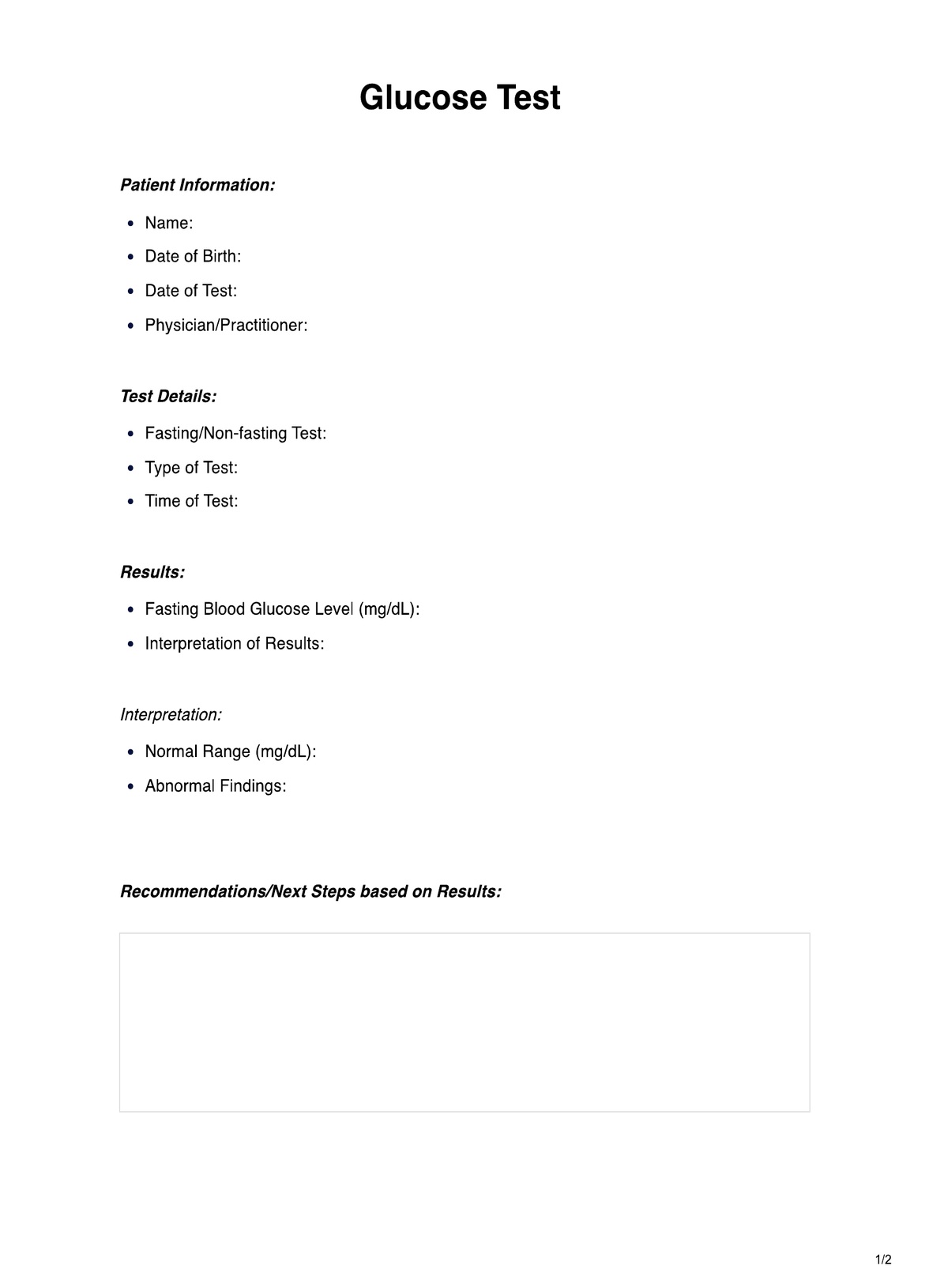Glucose Tests are vital for diagnosing and managing diabetes. They also help assess overall health, detect potential issues with blood sugar levels, and guide lifestyle changes.

Glucose Test
Learn the importance of a Glucose Test, a vital tool in monitoring blood sugar levels for diabetes and overall health assessment.
Use Template
Glucose Test Template
Commonly asked questions
There are several types, including fasting blood glucose tests, oral glucose tolerance tests (OGTT), random blood sugar tests, and continuous glucose monitoring (CGM).
Typically, individuals with risk factors for diabetes, like family history, obesity, or symptoms like increased thirst and frequent urination, should consider a Glucose Test. Pregnant women might undergo a test for gestational diabetes.
EHR and practice management software
Get started for free
*No credit card required
Free
$0/usd
Unlimited clients
Telehealth
1GB of storage
Client portal text
Automated billing and online payments











